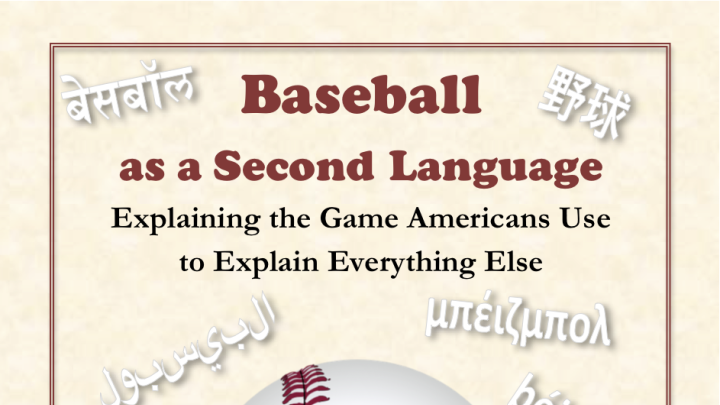The Brooklyn Dodgers All-Star pitcher Ralph Branca, whose name became a synonym for goat after he gave up a pennant-losing home run in 1951, might appreciate Baseball as a Second Language: Explaining the Game Americans Use to Explain Everything Else, by inveterate sports buff Harry Lewis, Gordon McKay professor of computer science and former dean of Harvard College. In the slim (74 pages) volume Lewis collects classic words and phrases associated with the great game, defines them as baseball terms, and describes how Americans, at least, apply those diamond-tempered meanings to describe, well, most anything. Lewis has clearly gathered notes and clippings on the subject for some time; he documents these usages with colorful examples from news items, television, and movies.
Rhubarb, for example, means a lively argument on the ball field, but Governor Arnold Schwarzenegger got into a “political rhubarb” in California. A grand slam is a home run hit when all bases are occupied, but a dermatologist has declared that stopping hair loss is a home run, while “Growing more hair is a grand slam.” Newbie investors swing for the fences—trying for huge financial gains. And even Vladimir Putin can throw a threatening brushback pitch, not from the mound, but the podium.








